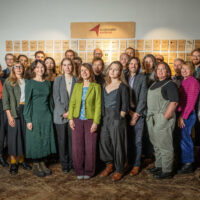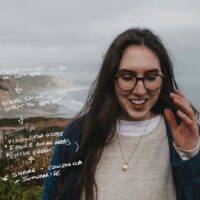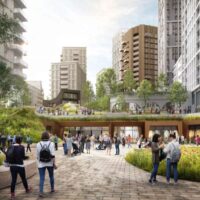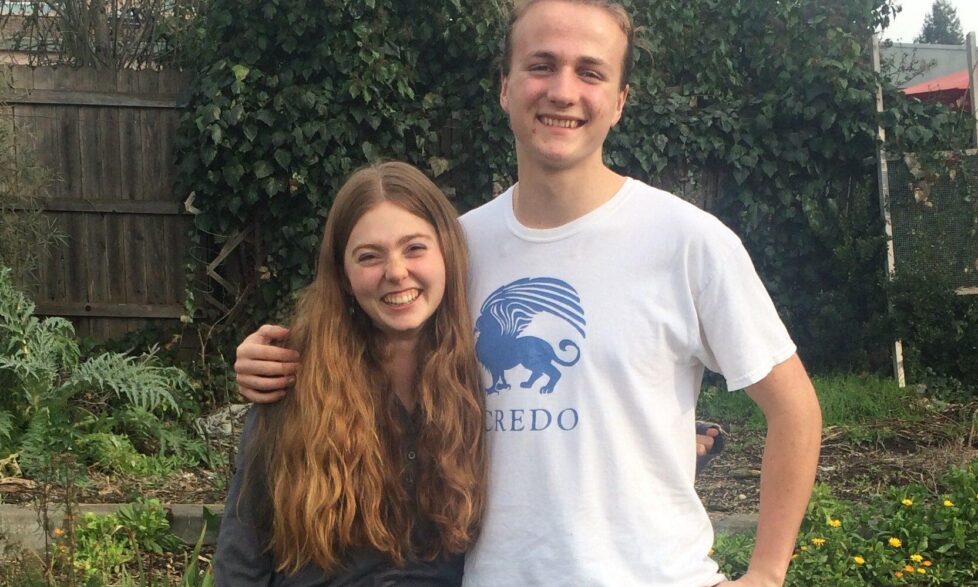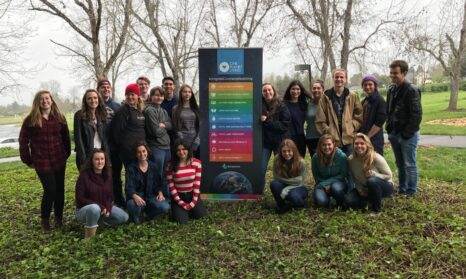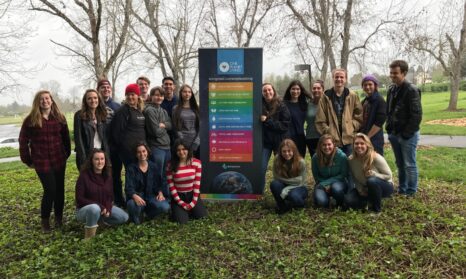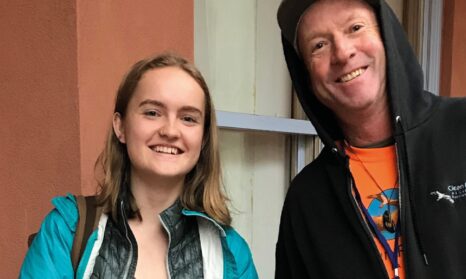One Planet Champions – Derek Bayless and Amelia Malpas at Credo High School
How do you use One Planet Living and what do you like about it?
Derek: I do my best to involve myself in my work around One Planet Living - which I often juggle with my other schoolwork - and create momentum around sustainability. I use the opportunities that it presents to me, such as getting personally in touch with businesses and organisations and facilitating groups who wish to learn about One Planet Living and what we’re doing. I’ve also been able to attend summits such as Bioneers, and a local Green Teen Youth Summit. All these opportunities inspire me to keep doing the work I’m doing, give me even more opportunities for involvement with businesses, and more ideas for how to exponentially increase One Planet Living’s lasting effect at Credo!
Amelia: One Planet Living has become one of the most exciting and vital programs at our school, in part because it affects so many different disciplines and aspects of life and people feel compelled to participate.
What has been your biggest success while using One Planet Living?
Derek: This is hard to gauge because, as a team, our projects and events have been successful, such as our Zero Waste Winter Faire (which raised $200 in cookie sales to support the Water Protectors at Standing Rock), and our school-wide eco-brick project. But I’m most impressed with the opportunities for involvement, teamwork and improvement in our school, and I would say that those opportunities represent Credo’s and my own success.
Amelia: Reducing the waste and making the science curriculum more green is one of my primary interests this year. My biggest success has been working with a toxic copper solution in an attempt to neutralise it. Instead of 400 millilitres of toxic waste destined for landfill for each class that passes through 11th grade chemistry, there will soon be next to none.
To detoxify the solution, I used aluminium foil from the garbage bin. There are trade-offs in this new experiment - it uses more heat, for example - but overall the amount of waste is being significantly minimised. The solution without copper is ammonia and the hope is that it can be used as a harsh cleaning detergent, further making use of this one chemistry lab.
What has been your biggest challenge and what did you learn?
Amelia: The biggest challenge is trying to inspire change at the school and the student body through One Planet work without coming across as ‘police’ or snobs.
Derek: My biggest challenge - a side-effect of working in a high school environment - has partly been battling apathy towards sustainable initiative in an academic atmosphere. It is a battle I’m still fighting and learning, through garnering positive attention for small acts of environmentalism and showing a new way to talk about sustainability with younger people who wouldn’t otherwise be concerned.
What are you most proud of?
Derek: The progress we’ve already made has undoubtedly already produced a lasting effect within my school community. I am proud to be a part of this initiative in the centre of a group of people striving to move forward and bring the planet along for the ride.
Amelia: I’m most proud of the chemistry experiment and for sharing Credo and One Planet Living with the wider community through writing up an article in a local paper. These are the two activities that I have put the most effort into, and felt the most tangible reward.
What are you looking forward to in 2017?
Amelia: Hopefully 2017 is the year that Credo will move to Sonoma Mountain Village. I will be a senior in the next school year, so I aspire to be a student leader of this process. I’m excited to spend the last year of my Waldorf education engaged with a project that will impact so many students in all the incoming classes.
Derek: I can’t wait to see where this will go. Even in the early stages, the progress being made gives me hope for the future of this initiative, and indeed for the entire human community and the planet.
You can follow along with Credo’s One Planet Living activities on Instagram
